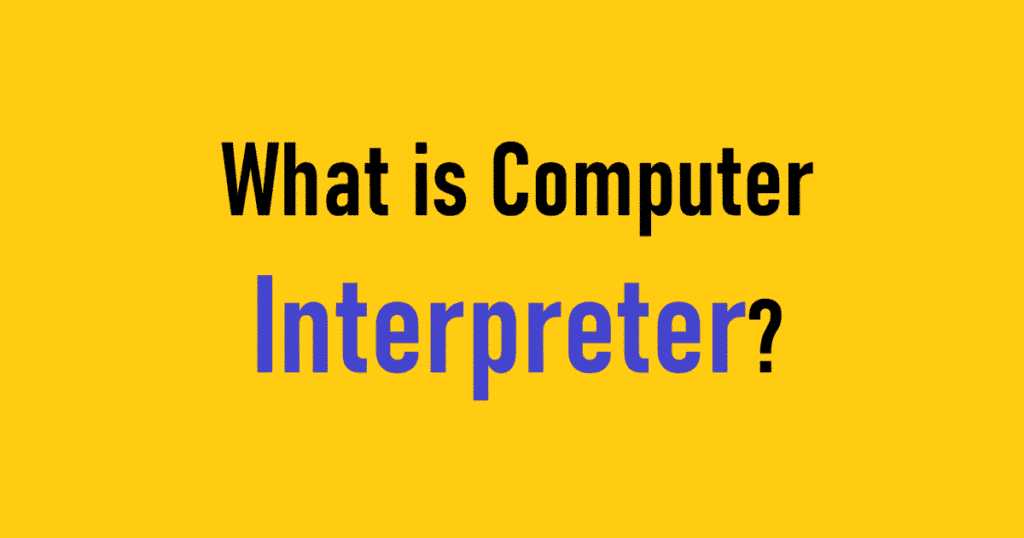These are the top 8 Best JavaScript Books for Beginners. JavaScript. The language of the web. From interactive front-end elements to powerful back-end applications with Node.js, JavaScript is arguably the most important language a web developer can learn. But where do you start? With so many resources available, it can be overwhelming to navigate the landscape. This is where a good book can be invaluable, providing a structured and in-depth learning experience.
Forget endless scrolling through tutorials and piecing together snippets of information. A well-written JavaScript book offers a coherent path, guiding you through the fundamentals, best practices, and common pitfalls. Today, we’re diving into the top 8 best JavaScript books for beginners, covering a range of learning styles and approaches to help you find the perfect fit.
Best JavaScript Books for Beginners

Ready to dive headfirst into the wonderful world of JavaScript? Get ready to supercharge your skills with these top 8 must-read books for beginners! We’re talking clear explanations, hands-on projects, and everything you need to go from zero to hero in the land of JS! Buckle up, coding adventures await – these books are your ultimate launchpad!
Why Learn From a Book?
Before we jump into the recommendations, let’s quickly recap why books remain a powerful learning tool in the digital age:
- Structured Learning: Books provide a carefully curated and organized curriculum, ensuring you learn concepts in a logical and progressive order.
- In-Depth Explanations: Unlike many online resources that gloss over complex topics, books often delve into the “why” behind the “how,” fostering a deeper understanding.
- Practical Examples and Exercises: Good JavaScript books are packed with practical examples and exercises that allow you to apply what you’ve learned and solidify your knowledge.
- Offline Access: No internet? No problem! Learn on the go, during your commute, or anywhere you choose.
- A Reliable Reference: A well-indexed book serves as a handy reference guide to consult long after you’ve finished reading.
So, without further ado, let’s explore the top 8 JavaScript books for beginners:
1. A Smarter Way to Learn JavaScript by Mark Myers
- Best For: Hands-on learners who prefer an interactive approach.
Mark Myers’ “A Smarter Way to Learn JavaScript” takes a unique approach by combining a book with an online learning platform. Each chapter in the book is short and concise, focusing on a specific concept. The real learning happens on the companion website, where you’ll find interactive exercises and quizzes to reinforce your understanding. This active recall method is incredibly effective for long-term retention.
Key Features:
- Interactive Learning: Heavy emphasis on practical exercises and quizzes.
- Short, Focused Chapters: Easy to digest and retain information.
- Self-Paced: Learn at your own speed and revisit concepts as needed.
- Great for Visual Learners: The online platform includes visual aids and animations.
Why it’s great for beginners: This book avoids overwhelming beginners with abstract concepts and focuses on building practical skills through constant application. The interactive nature keeps you engaged and motivated, making learning JavaScript more enjoyable.
2. JavaScript and JQuery: Interactive Front-End Web Development by Jon Duckett
- Best For: Visual learners and those who appreciate beautifully designed books.
Jon Duckett’s “JavaScript and JQuery” is renowned for its exceptional design and clear, visually appealing explanations. This book uses a wealth of diagrams, illustrations, and code examples to make complex concepts easy to understand. It covers not only JavaScript but also jQuery, a popular library that simplifies many common JavaScript tasks.
Key Features:
- Visually Stunning: Beautifully designed with clear illustrations and diagrams.
- Comprehensive Coverage: Covers both JavaScript and jQuery.
- Practical Examples: Plenty of real-world examples to illustrate concepts.
- Beginner-Friendly Language: Uses simple and easy-to-understand explanations.
Why it’s great for beginners: The book’s visual approach and clear writing style make it an excellent choice for beginners who may be intimidated by traditional coding books. The inclusion of jQuery is a bonus, allowing you to quickly build interactive web pages.
3. Eloquent JavaScript: A Modern Introduction to Programming by Marijn Haverbeke
- Best For: Those seeking a more philosophical and conceptual understanding of programming.
“Eloquent JavaScript” takes a slightly different approach, focusing on the underlying principles of programming and how they apply to JavaScript. It’s a more theoretical book than some others on this list, but it provides a deep and comprehensive understanding of the language. The book also explores more advanced topics like functional programming and asynchronous programming.
Key Features:
- In-Depth Explanations: Provides a thorough understanding of JavaScript concepts.
- Challenging Exercises: Includes thought-provoking exercises to test your knowledge.
- Free Online Version: Available for free online at eloquentjavascript.net.
- Covers Advanced Topics: Introduces functional and asynchronous programming.
Why it’s great for beginners: While more theoretical than some, “Eloquent JavaScript” is still accessible to beginners. Its focus on understanding the core principles of programming will provide a solid foundation for future learning. The free online version is a great way to try it out before committing to a physical copy.
4. JavaScript for Kids: A Playful Introduction to Programming by Nick Morgan
- Best For: Absolute beginners of all ages who prefer a playful and engaging learning experience.
Don’t let the title fool you; “JavaScript for Kids” is an excellent starting point for anyone new to programming, regardless of age. Nick Morgan uses a playful and approachable style to introduce fundamental programming concepts using JavaScript. The book is packed with fun examples and projects that will keep you motivated and engaged.
Key Features:
- Playful and Engaging: Uses a fun and approachable style to make learning enjoyable.
- Simple Examples: Focuses on simple and easy-to-understand examples.
- Hands-On Projects: Includes a variety of projects to build and experiment with.
- Covers Fundamental Concepts: Introduces core programming concepts clearly and concisely.
Why it’s great for beginners: This book breaks down complex concepts into bite-sized pieces and uses humor and engaging examples to keep you motivated. The focus on hands-on projects allows you to immediately apply what you’ve learned and see the results of your efforts.
5. Head First JavaScript Programming: A Brain-Friendly Guide by Eric Freeman and Elisabeth Robson
- Best For: Visual and kinesthetic learners who thrive on engaging and interactive learning experiences.
The “Head First” series is known for its unique and engaging learning approach. “Head First JavaScript Programming” uses a combination of visual aids, puzzles, and exercises to make learning JavaScript more fun and memorable. The book emphasizes active learning and encourages you to think critically about the concepts being presented.
Key Features:
- Brain-Friendly Approach: Uses visual aids, puzzles, and exercises to enhance learning.
- Engaging and Interactive: Keeps you motivated and involved in the learning process.
- Practical Examples: Provides plenty of real-world examples to illustrate concepts.
- Focus on Active Learning: Encourages you to think critically and apply what you’ve learned.
Why it’s great for beginners: The “Head First” approach is particularly effective for beginners who may struggle with traditional coding books. The engaging format and emphasis on active learning make it easier to grasp complex concepts and retain information.
6. You Don’t Know JS (series) by Kyle Simpson
- Best For: Those seeking a deeper and more nuanced understanding of JavaScript’s inner workings.
While technically a series of books, “You Don’t Know JS” is a comprehensive resource that delves into the core mechanisms of JavaScript. While not strictly for absolute beginners, tackling the first book, “Up & Going,” is a great way to build a strong foundation. This series focuses on understanding the “why” behind JavaScript’s behavior, going beyond the surface-level syntax and exploring the language’s quirks and complexities.
Key Features:
- Deep Dive into JavaScript: Explores the core mechanisms and intricacies of the language.
- Comprehensive Coverage: Covers a wide range of topics, from scope and closures to prototypes and asynchronous programming.
- Focus on Understanding: Emphasizes understanding the “why” behind JavaScript’s behavior.
- Free Online Version: Available for free online at github.com/getify/You-Dont-Know-JS.
Why it’s great for beginners (with a caveat): While the entire series might be overwhelming initially, “Up & Going” is an excellent introduction. It encourages you to think critically and question assumptions, leading to a deeper understanding of JavaScript. Be prepared for a more challenging learning experience compared to some of the other books on this list.
7. The Principles of Object-Oriented JavaScript by Nicholas C. Zakas
- Best For: Beginners who want to understand object-oriented programming (OOP) principles in JavaScript.
While JavaScript is a multi-paradigm language, understanding object-oriented programming is crucial for building complex applications. “The Principles of Object-Oriented JavaScript” provides a clear and concise introduction to OOP concepts in the context of JavaScript. It covers topics like prototypes, inheritance, and encapsulation, helping you write more organized and maintainable code.
Key Features:
- Focus on Object-Oriented Programming: Provides a comprehensive introduction to OOP principles in JavaScript.
- Clear and Concise Explanations: Uses simple and easy-to-understand language.
- Practical Examples: Includes plenty of examples to illustrate OOP concepts.
- Covers Prototypes and Inheritance: Explains the key concepts of JavaScript’s prototypal inheritance.
Why it’s great for beginners: This book demystifies object-oriented programming and shows you how to apply these principles in your JavaScript code. While OOP can be challenging to grasp, this book breaks it down into manageable pieces and provides practical examples to solidify your understanding.
8. JavaScript Absolute Beginner’s Guide by Kirupa Chinnathambi
- Best For: True beginners who are completely new to programming and need a very gentle introduction.
“JavaScript Absolute Beginner’s Guide” lives up to its name. It starts from the very basics, assuming no prior programming experience. The book walks you through the fundamentals of JavaScript, from variables and data types to functions and control flow. It uses clear and concise language and avoids overwhelming you with jargon or complex concepts.
Key Features:
- Extremely beginner-friendly: Assumes no prior programming experience.
- Clear and Concise Language: Uses simple and easy-to-understand explanations.
- Focus on Fundamentals: Covers the core concepts of JavaScript programming.
- Practical Examples: Includes plenty of examples to illustrate concepts.
Why it’s great for beginners: If you’re feeling intimidated by the prospect of learning JavaScript, this book is an excellent starting point. It provides a gentle and supportive introduction to the language and helps you build a solid foundation for future learning.
Choosing the Right Book for You:
Ultimately, the best JavaScript book for you will depend on your learning style, prior experience, and goals. Consider the following factors when making your decision:
- Your Learning Style: Do you prefer hands-on exercises, visual explanations, or theoretical discussions?
- Your Prior Experience: Are you completely new to programming, or do you have some experience with other languages?
- Your Goals: What do you want to achieve with your JavaScript skills? Are you interested in front-end development, back-end development, or something else?
Beyond Books: Combining Resources
While books are an excellent resource, don’t be afraid to supplement your learning with other materials, such as:
- Online Tutorials: Websites like freeCodeCamp, Codecademy, and MDN Web Docs offer a wealth of free JavaScript tutorials.
- Online Courses: Platforms like Udemy and Coursera offer more structured and in-depth JavaScript courses.
- Coding Bootcamps: Intensive coding bootcamps can provide a fast-paced and immersive learning experience.
- Community Forums: Join online communities like Stack Overflow and Reddit to ask questions and get help from other developers.
Final Thoughts:
Learning JavaScript is a journey, not a destination. Be patient with yourself, practice regularly, and don’t be afraid to experiment. With the right resources and a dedication to learning, you can master JavaScript and unlock a world of possibilities in web development. Happy coding!


